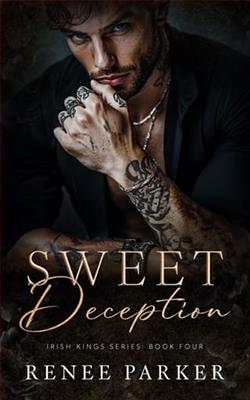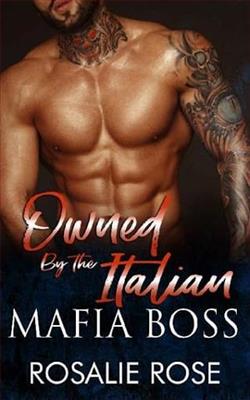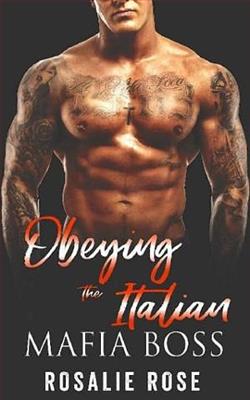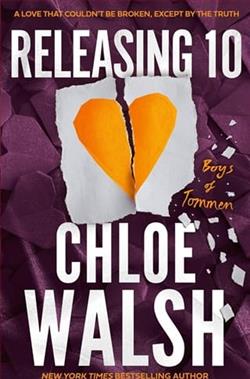Page 16 of The Strawberry Thief
The blue of the sky has faded now from eggshell-blue to violet. Upstairs I can still hear Rosette playing with her button-box. When I go into her bedroom I will find them arranged in complex patterns along the floorboards, under the curtains, the skirting-boards, lined up in order of colour and size. Rosette is sensitive to colours – and to other things. I would like to know what upset her, but to ask outright would be a mistake. She will tell me when – and if – she wants me to know.
I close up thechocolaterie. There will be no more customers today. And just as I do so, I notice that the new shop is open at last; light falls from the window over the darkening cobbles. A pink neon sign –Les Illuminés– shines above the window.
Les Illuminés. It sounds like a chichi lighting shop. If so, it will be expensive, and I do not expect it to last very long. Lansquenet is not affluent, and the people who can afford fancy goods will buy them in Agen, or maybe even from as far as Marseille or Toulouse. I assume the Montours know the manager. Perhaps that’s why they let it so fast. I briefly consider crossing the square to have a look inside. But just as I consider it, I see the neon sign switch off, and a woman’s figure appear at the door, silhouetted against the light. For a moment she looks vaguely familiar, but she is too far away to see clearly. Then the light goes off, and I hear the rattle of the shutters over the window.
Such a very familiar sound. Such a familiar setting. There’s certainly nothing to account for this sudden sense of unease; the feeling that someone is watching me from behind the shuttered glass. And there’s something else, too, barely glimpsed against the dusk. A trace of colours around the door; a whisper of incense; a snicker of smoke; the scent of other places.
Find me. Feel me. Face me.
A challenge? It feels like a challenge. Or maybe an invitation. The pink neon sign has left a kind of after-image in the air, a kind of blur, like petrol on stone after a fall of April rain. And then there comes another memory: the sound of a pair of scarlet heels on the Paris cobblestones—
Surely not. Our kind are few. And yet I am glad I asked Rosette not to go into the shop alone. There’s somethingattractiveabout the place, a glamour that has nothing to do with the pretty pink sign, or the purple door. A dangerous glamour, promising much, and offering—
What do you want?
Find me. Feel me. Face me.
I watch for a time, but there is no more activity. The woman has gone back inside. Do I know her? Surely not. And still there is something about her that I find unsettling. That trace of colours in the air. Or perhaps it is simply the speed with which she has reopened the shop, so soon after the owner’s death. It must be someone from out of town, I tell myself as I turn away. Anyone from the village would have waited, out of respect.
From upstairs I hear Rosette singing softly to herself. ‘Vlam bam-bam. Vlam badda-bam.’Something smells of bonfire smoke, and burning sugar, and cinnamon.
The Hurakan was blowing.
I don’t know why that single phrase keeps coming back to haunt me. That phrase, and the memory of snow, and the cat, paw raised, on the doorstep—
I call: ‘Do you want your hot chocolate now?’
There comes a little hooting reply. Then, Rosette’s footsteps on the stairs. She glances at the window; nods.
‘Did something upset you earlier?’
She shrugs. In the shadows behind her, I see a gleam of guinea-gold. I always know when Rosette is hiding something – Bam always gives the game away. I can see him clearly now, grinning from the top of the stairs. Something has happened. An Accident? It has been years since the last one. Maybe she has outgrown them. I reach for her instinctively, but Rosette is unreadable; her mind a candyfloss tangle of thoughts. Try to unravel them, and she will turn on me like a weathervane.
I try for a humbler magic. ‘Sprinkles on your chocolate?’
Pink marshmallows, and whipped cream. And some for my new friend. He likes pink marshmallows, too.
I pour the chocolate into her favourite cup and top it with marshmallows. Rosette drinks carefully, both hands curled around the cup.
‘I’d like to meet your new friend. Perhaps you could bring him round some day.’
Will there be marshmallows?
‘Of course.’
She smiles. Her eyes are clear as summertime. And yet she is hiding something, I know: I can see it in her colours. I try to put the thought aside. She will tell me, in her own time. And yet I cannot help but see Bam, in the shadows, grinning at me; or hear, in the sound of the wind, the steps of high-heeled shoes on the cobblestones …
8
Saturday, March 18
I do not remember the War at all. I was too young when it ended to have any clear memory of that time. But I do remember the post-war years; the bitter retaliations; the people who couldn’t get served in shops. My father took no part in it; preferring his work on the farm to following village gossip. But Tante Anna was a weathervane, turning wherever the wind blew: one day refusing to speak to Madame Machin or Monsieur Truc; the next day complaining that Monsieur Untel had failed to greet her after church.
My father and I did not go to church. And Mimi, of course, was impossible to keep quiet in any public place. Her continuous dancing and jerking, not to mention her inappropriate laughter and the little birdlike cries she made – so like Rosette, although Mimi had none of Rosette’s complexity – all these things made it better all round to keep her at home, and out of the way of the man whose daughter had died of the ‘flu; of the woman whose teenage son had been shot by the Boche for making a joke; of the parents whose sons had gone to the Front and never come back; of the parents whose daughter had given birth to a Nazi’s baby.
Even I could see what they thought whenever they saw my sister. Why couldn’t it have been Mimi? Who would even have missed her? It wasn’t fair. A useless child, a damaged child had outlived half her contemporaries. A useless, damaged,Jewishchild – oh yes, we heardthatonce or twice. Not everyone there was as liberal as History likes to teach us, and some of them even blamed the Jews for what had happened in Germany. Those people were a minority, but I knew they existed. Some of them were our neighbours, Reynaud, and though I’m in no position to judge, I could see it in their eyes – why Mimi? Whythatchild, who was never one of ours?
Well, yes. Of course he is right. War is a complicated business, unsuited to the comfortable black-and-white certainties of historians. Even as a boy, I knew that virtue and villainy are largely a matter of perspective. But then, Iwouldthink so,mon père. You, of all people, must know that. I wonder, did Narcisse ever suspect who lit the fire on the riverboat? Is that why he hated me, or was it simply, as he implies, a dislike of the Catholic Church? I never told anyone. Only you,mon père; in tears, behind the dark screen of the confessional. And you absolved me, didn’t you? You took away my burden. But absolution and forgiveness are two entirely different things. I see that, now that I am comprised entirely of different cells. The hateful act remains with me still, like the mark of God on Cain. But if absolution is not enough to cleanse me of my crime, what is? And where do I go to find it?















